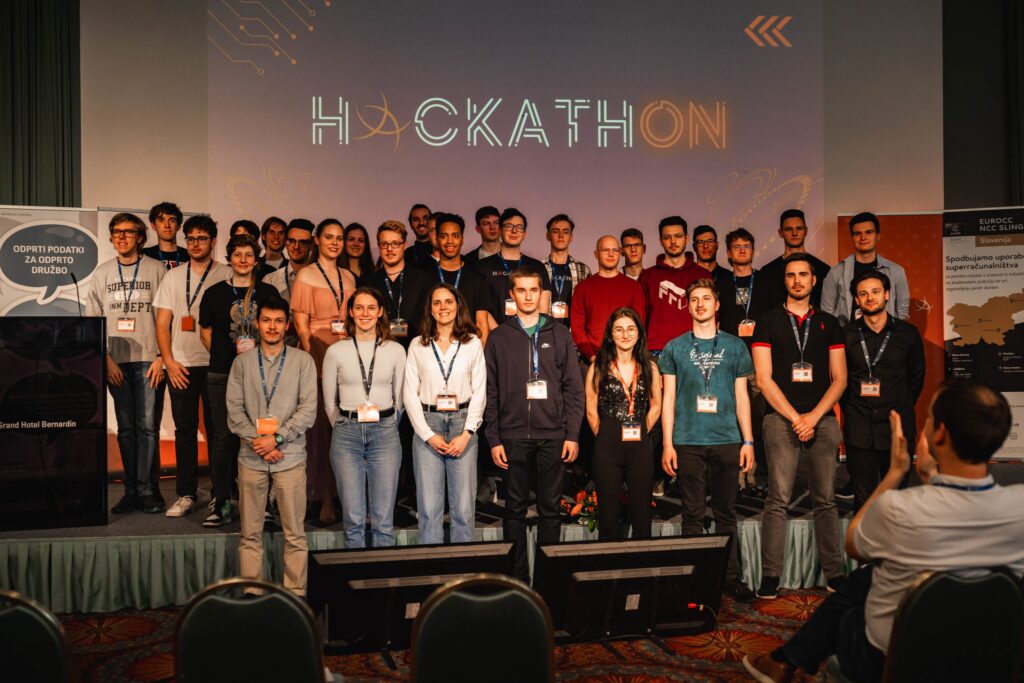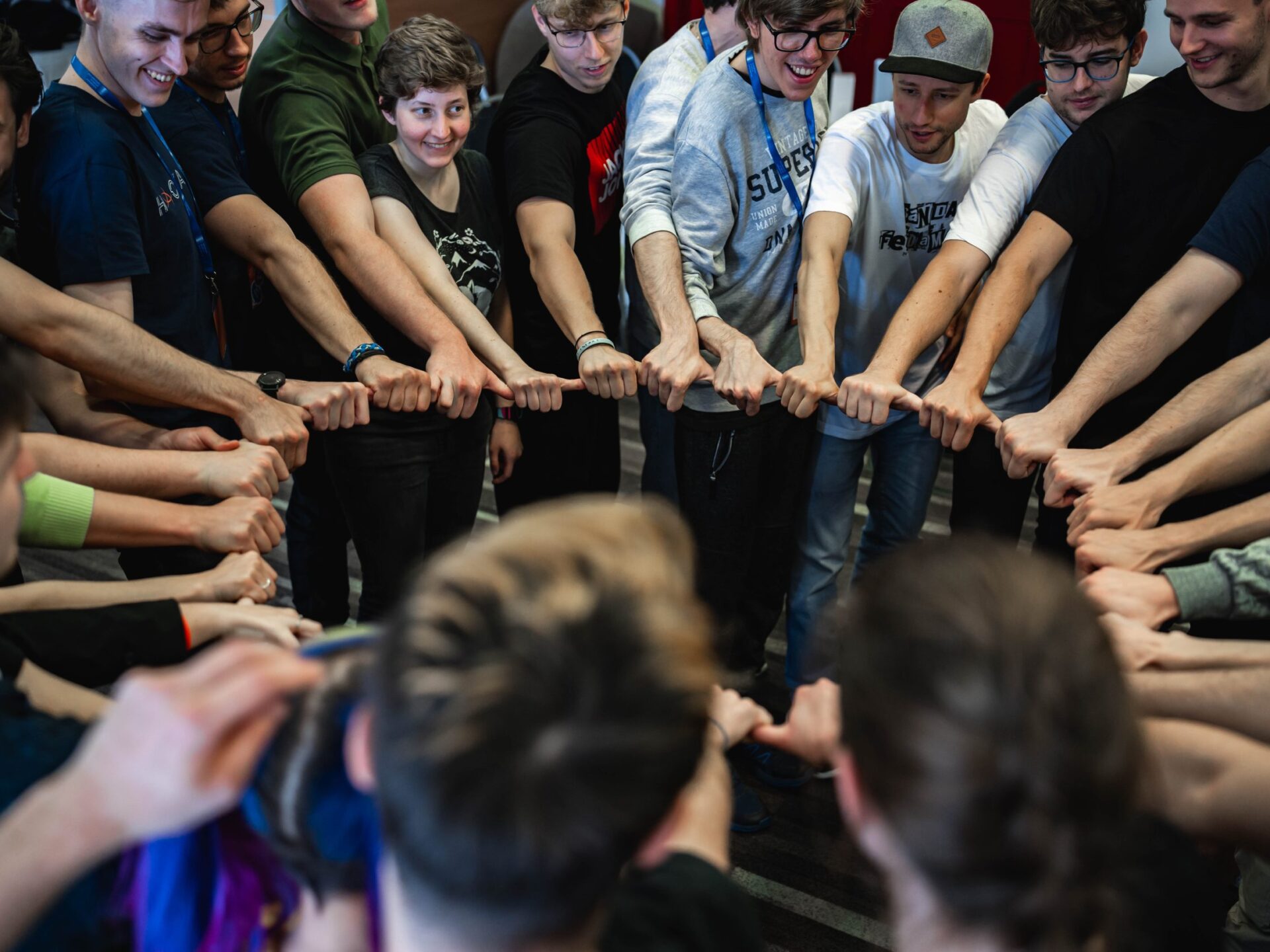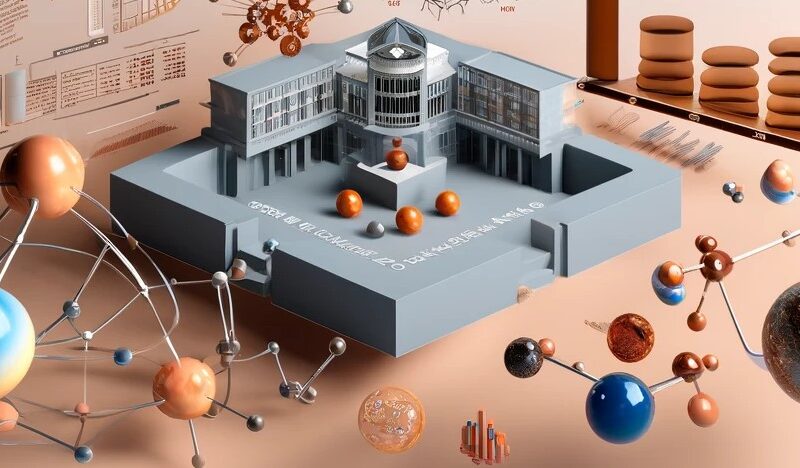On 13 and 14 May, the second 24-hour round of the first national Arnes HackathON took place in Portorož as part of the Slovenian Informatics Days conference.
Under the slogan “Help shape the future with open science”, more than 70 students from all over Slovenia competed in the first Arnes national hackathon, with the top 40 making it to the final round. The focus of the competition was to apply the principles of open science, with an emphasis on open data and identifying its potential through supercomputer processing, to solve challenges related to UNESCO’s Sustainable Development Goals.
All teams were provided with access to the Arnes supercomputer cluster in the first round and access to EuroHPCVega in the second round. Jani Pogačar from the Faculty of Information Studies in Novo mesto provided expert assistance in the field of supercomputing, while Samo Stanič from the University of Nova Gorica, coordinator of the Slovenian Supercomputing Network SLING, was a member of the jury.
First place: “IDealni Scenarij”
The team, consisting of Alen Cigler, Ruben Ferreira, Hana Skitek, Erazem Stanonik and Jana Volk, developed a solution to efficiently manage, share and use data without compromising security, privacy or data sovereignty. Their system standardises and regulates the way data is managed, shared and used, removing existing barriers to the efficient sharing and use of data and enabling individuals, businesses, research organisations and government institutions to explore new opportunities offered by modern technology.
Second place: “Kenguruji”
Filip Štamcar, Nik Pirc and Matija Derganc improved a flood forecasting model to produce new flood maps of Slovenia, compare the data with existing flood protection infrastructure and display estimated water levels according to weather forecasts on a website.
Third place: “Rudarji znanja”
Blaž Erzar, Haris Kupinić, Luka Salvatore Pecoraro, Jaša Samec and Jovana Videnović created the žARKO project, which uses photos and other data to identify short-term irradiation, predict the amount of energy produced by solar power plants, and detect cell failures or malfunctions due to dirt.
All three teams worked with data available on the Slovenian Open Data Portal – OPSI, while the second and third placed teams also used data from the Slovenian Environmental Agency – ARSO.
The best solution for Sandoz | Lek: BliskBus
The Sandoz | Lek Sponsorship Challenge focused on natural language processing and large-scale language models in drug labelling and package inserts. Iva Černoša and Neo Xander received the prize for the best solution.
Building knowledge through collaboration
The event was co-organised by the Slovenian Society Informatika, the OPSI portal managed by the Ministry of Digital Transformation and the Ministry of Public Administration, University of Ljubljana, Faculty of Computer and Information Science, the EuroCC SLING National Competence Centre for Supercomputing and the Slovenian Open Science Community. The event was also held under the honorary patronage of the Slovenian National Commission for UNESCO.
The Jožef Stefan Institute, the Slovenian Environmental Agency (ARSO), the Institute of Information Sciences Maribor (IZUM), Clarin.si, the University of Ljubljana, Centre for Language Resources and Technologies (CJVT) and the Institute of Contemporary History also shared their indispensable data, experience and expertise during the HackathON.
The event would not have been possible without the financial sponsors who contributed to the prize fund for the attractive prizes.: Ministry of Digital Transformation, Sandoz | Lek, Modra Zavarovalnica.
